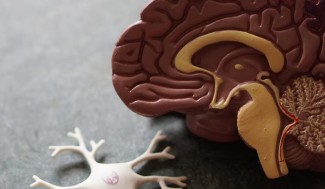The team "Motivation, Brain and Behavior", co-directed by Mathias Pessiglione (Inserm) at the Paris Brain Institute, proposes in a study published in the Journal of Neuroscience a new approach to understand how our prefrontal cortex makes decisions.
Decision-making: costs and benefits
Making a decision is based on a fine balance between costs and benefits. In other words, when faced with several options, we must identify the one that will provide the greatest reward with the least effort. When we are faced with this situation, which is almost all the time in our lives, a series of operations take place in our brain to evaluate the different possibilities that are presented to us and choose the best one.
If the role of the prefrontal cortex in the evaluation of effort and reward is well accepted, the functional role of each sub-region is subject to debate, because the results obtained in different studies are contradictory.
Deliberation and confidence in one's own choices
In an attempt to answer this question, Mathias Pessiglione's team at the Paris Brain Institute adopted another approach, in order to clarify the distribution of roles in the prefrontal cortex. To do this, they took into account the metacognitive part of the decision, i.e. the costs and benefits of the deliberation itself (spending time thinking to have more confidence in one's decision). Thus, in a decision such as "Do I continue up to the pass to get the view of the other valley?", one must evaluate not only the option under consideration, i.e., the effort to be made (you have to climb all the way up the scree and that seems difficult) and the reward to come (I've been told that the view is really nice from up there), but also the confidence in the choice under consideration (am I right in wanting to continue?) and the time of deliberation (do I need to think about it more?)
The researchers presented 39 participants with several preference tasks that ranged from ratings -- do you like this option a little, a lot, or not at all? - as well as binary decisions -- do you prefer option A or B? Are you willing to put in this much effort for this much reward? These tests were combined with functional imaging (fMRI).
A new distribution of tasks in our prefrontal cortex
Their results confirm the role of the ventromedial prefrontal cortex (vmPFC) in assigning a value to the different options presented during a choice. Thus, the activity of this region increases according to the value of the promised reward and decreases according to the cost of the effort required to obtain it. The more dorsal regions of the prefrontal cortex are more associated with the metacognitive variables proposed by the Paris Brain Institute’s team. Confidence in one's own choices is represented in medial prefrontal cortex (mPFC) activity, while deliberation time is reflected active in dorsomedial prefrontal cortex (dmPFC).
Here we confirm the value of distinguishing between variables that determine the decision (effort and reward) and those that determine the meta-decision (when to stop one's choice) in understanding the functional architecture of the prefrontal cortex. The advantage of the new conceptual framework is that it can easily be generalized to other types of behavior than choices. For example, to make a judgment, there is also a metacognitive trade-off between confidence and deliberation: one must have confidence in one's judgment, and at the same time one cannot take an infinite amount of time before stopping one's judgment.
Sources
https://pubmed.ncbi.nlm.nih.gov/35654606/
Clairis N, Pessiglione M.J Neurosci. 2022 Jun 1







